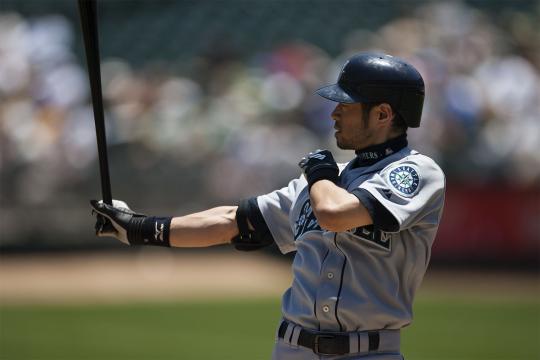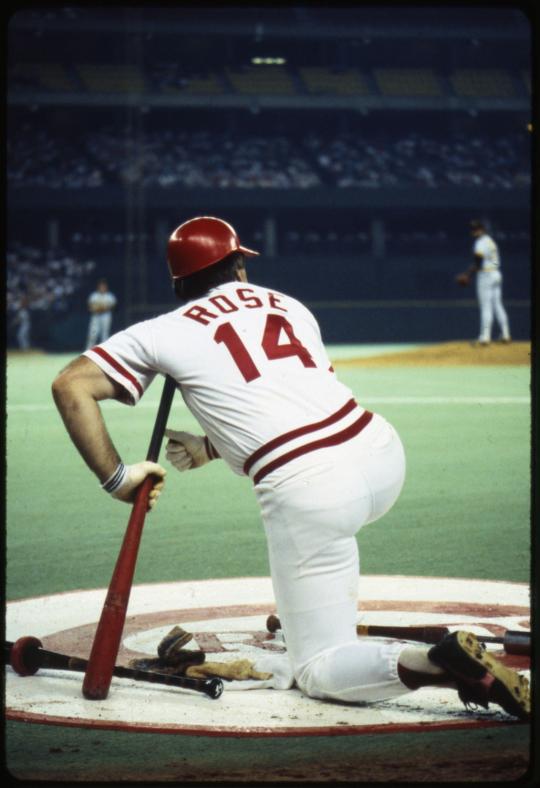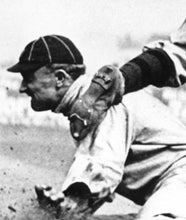- Home
- Our Stories
- Suzuki’s latest milestone brings 4,000-hit club into focus
Suzuki’s latest milestone brings 4,000-hit club into focus
Depending on your point of view, history was made – or not made – last Wednesday in the ninth inning at Petco Park in downtown San Diego, where Ichiro Suzuki of the Miami Marlins lashed a double down the right field line against Padres reliever Fernando Rodney.
For the 42-year-old Suzuki, it was his second hit of the day, and the 4,257th of his 25-year professional career, surpassing Pete Rose’s total of 4,256. Of course, the first 1,278 of Ichiro’s hits came with the Orix Blue Wave of the Japanese Pacific League, before he debuted in the big leagues with the Seattle Mariners in 2001.
Whatever side of the argument you’re on, everyone can agree that the baseball world is fiercely protective of the record, and for good reason. In the 140-year history of organized baseball, there is no club more exclusive than the 4,000 hit club, an elusive milestone that seems to hold the test of time. Suzuki, Rose and Hall of Famer Ty Cobb, who had 4,189 hits, remain the only members of the club, each of them getting there with almost mind-boggling consistency.
Cobb and Rose each had 24-year careers, and hit steadily from the beginning to the end. Cobb posted a career batting average of .366. He only dropped below .300 once – his first year in the big leagues – staying well above it ever since then. Rose’s career batting average was .303; he led the majors in hits seven times, and led the league in batting average three times. Through 16 seasons in Major League Baseball, Ichiro has averaged .314, and for the nine seasons he played in Japan, he’s averaged .353.
When comparing their statistics side by side, the numerical pattern is clear – consistency at the plate is what got them to 4,000. But once they actually got there, after years and years of chipping away toward a seemingly impossible goal, they were not greeted with unanimous enthusiasm. Looking at each member within the context of when they played yields a different response from the baseball community.
Ty Cobb’s 4,000th big league hit was a double to right in Navin Field. The day was July 18, 1927, and he was pinch hitting as a member of the Philadelphia Athletics, against his former team, the Detroit Tigers. Cobb was 40 years old, and would end his career the following year. Ironically, this feat was not widely written about nationwide, let alone in the Philadelphia and Detroit area newspapers.
Ichiro Suzuki, a recent member of the 4,000 hits club, takes a break between pitches while playing for the Mariners. (Brad Mangin / National Baseball Hall of Fame)
Share this image:
Pete Rose waits for his turn at-bat, en route to 4,256 hits. (Michael Ponzini / National Baseball Hall of Fame)
Share this image:
Hall of Fame Membership
There is no simpler, and more essential, way to demonstrate your support than to sign on as a Museum Member.
The papers focused on the game story, rather than history in the making. “First Inning Rally Wins For Bengals Over Lefty Grove,” read the Detroit Free Press; “Cobb hit a line drive into right field and Heilmann, trying for a one-handed catch, got his glove on the ball but it bounced out and gave Cobb a scratch two-bagger,” wrote the Detroit News. Maybe the city was still bitter about their star player leaving, or perhaps no one understood the gravity of 4,000 hits, but either way – it did not receive the same degree of attention that Pete Rose or Ichiro Suzuki did.
Pete Rose hit his 4,000th about 57 years later, and by this point, the world knew how rare a feat it was. He reached the milestone on April 13, 1984 – the 21st anniversary of his first hit in the Major Leagues – while playing for the Montreal Expos against his former team, the Philadelphia Phillies. Unlike Cobb, who was navigating uncharted waters, Rose was given a two-minute standing ovation, and made national news with his achievement.
But even still, Rose received a bit of pushback on the legitimacy of his 4,000th hit. The Associated Press soon after quoted one of Ty Cobb’s sons, James H. Cobb, as discrediting Rose. The crux of James’s argument was that his father was playing with a 154-game schedule rather than 162-games – giving Rose more at bats. “If Pete Rose had the same schedule my father had, Pete wouldn’t have even had 4,000 hits yet,” Cobb said. “Maybe he would say it’s all right. Maybe he wouldn’t. I do know this: He was proud of his records.” Cobb was understood the sanctity of his father’s record, and felt the need to protect it.
Which is why, 32 years later, when Ichiro Suzuki smacked that double in Petco Park to reach his 4,000th hit – the baseball world felt need to launch into a country-wide deliberation. As the debate rages on and on, Suzuki prefers to do what he does best – stay focused on the game.
“If people think that way, great, if not, that’s OK too,” he told the Associated Press. “I don’t think that it’s a small thing, but I don’t think it’s a big thing either… For me it’s not about the record. It’s about my teammates and the fans.”
Alex Coffey is the Communications Specialist at the National Baseball Hall of Fame





